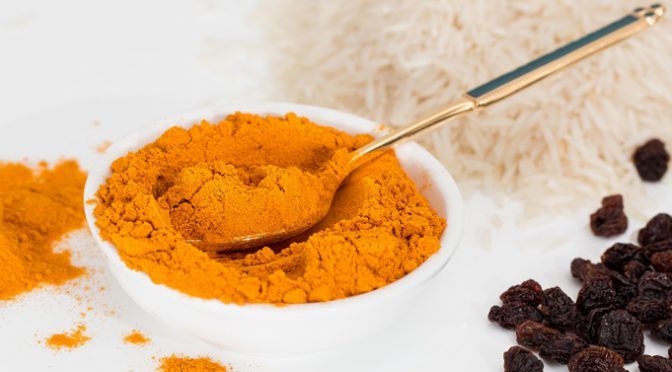
Used in most Indian curries, turmeric has almost no calories (1 tablespoon = 24 calories) and zero cholesterol. This spice is used for nearly every health condition – right from smallpox to a sprained ankle, digestion, arthritis, immunity and even in cancer treatment. The reason for its health effects is the compound called curcumin. Just as oranges are rich in Vitamin C, turmeric is a source of curcumin. But before we tell you more about this compound, let’s understand the difference between these two.
How Turmeric and Curcumin Support Weight Loss?
Curcumin is a naturally occurring chemical compound found in turmeric. Turmeric, on the other hand, is the root of a plant known as Curcuma Longa and that’s probably where curcumin gets its name from. Curcumin belongs to a family of chemicals known as curcuminoid. Apparently, curcumin works on multiple functions and processes, so it can cure everything from pain and inflammation to tumors.
Best Ways to Take Turmeric
- You can combine it with fat to obtain all its nutrients. When you eat it with healthy fats like coconut oil or ghee, the curcumin in turmeric can be easily absorbed in the digestive tract and into the bloodstream.
- We all know that turmeric milk boosts immunity. But what you may not know is that to reap its health benefits you need to add a pinch of pepper to this drink.
- Toss it with roasted vegetables.
- A bowl of vegetable or chicken soup feels, even more, warming when it’s tinged with this spice.
- Simmer it with milk and honey to make an earthy and comforting beverage.
Curcumin For Weight Loss
Curcumin helps in weight loss and reduces the incidence of obesity-related diseases. The inflammation associated with obesity is due in part to the presence of immune cells called macrophages in fat tissues. These cells produce cytokines [Ref] that can cause inflammation in the heart, and islets of the pancreas. The cells can also increase insulin resistance in muscle and liver. Researchers believe that turmeric suppresses the number and activity of these cells, and help reduce some of the adverse consequences of obesity [Ref].
Side Effects of Turmeric
There are no side effects. People with turmeric sensitivity can have mild stomach upset or diarrhea. Pregnant women can also use it, but with some caution. This apart, if you’re suffering from gallbladder problems and acidity, avoid it, as it can worsen your condition. It can slow down blood clotting and might cause extra bleeding during and after surgery. Know about its health benefits.
Doctors suggest that taking even 1 tablespoon a day is safe. However, you can start off with maybe 1/4th tablespoon and then increase the dosage.
incorporating Turmeric into a Holistic Health Plan
To fully unlock the benefits of turmeric, it’s important to incorporate it into a balanced, holistic approach to health. At Health Total, we emphasize the significance of a well-rounded lifestyle that includes diet, nutrition, and natural remedies. Just as turmeric is known to support the body’s healing processes, our integrated health plans blend Ayurveda, homeopathy, and nutrition to address the root cause of health issues and promote overall wellness.
When combined with the expertise of Health Total’s team of Ayurvedic specialists, nutritionists, and homeopaths, turmeric can be an excellent addition to a tailored health plan designed to optimize your immune system and promote natural detoxification. Our personalized health programs also focus on managing conditions like obesity, diabetes, and digestive issues, ensuring that turmeric can be integrated alongside other therapeutic foods and practices.
Moreover, if you’re aiming for weight loss or reducing inflammation, turmeric’s benefits are even more pronounced. By working with Health Total’s experts, we help you design a diet that includes powerful anti-inflammatory ingredients like turmeric while balancing it with other detoxifying foods and herbs to support your metabolism and overall health.
Beyond its physical benefits, turmeric also encourages a holistic sense of well-being. The calming properties of turmeric can aid in stress reduction, contributing to mental clarity and emotional balance. This, in turn, supports the body’s healing mechanisms and helps improve the body’s resilience to stress-induced ailments, from digestive disorders to immune dysfunction.
By integrating turmeric into your daily routine alongside the expert guidance provided by Health Total, you are not just adding a powerful spice to your meals, but you’re also adopting a holistic, sustainable approach to long-term health and wellness. Whether you’re managing chronic conditions or just looking to boost your vitality, turmeric is a natural ally in your journey toward better health.
Sign up for a FREE consultation with Health Total experts to get more tips for losing weight with a weight loss diet plan for men and women or managing any other health condition. Call toll-free at 1-800-833-171709 and book an appointment!
